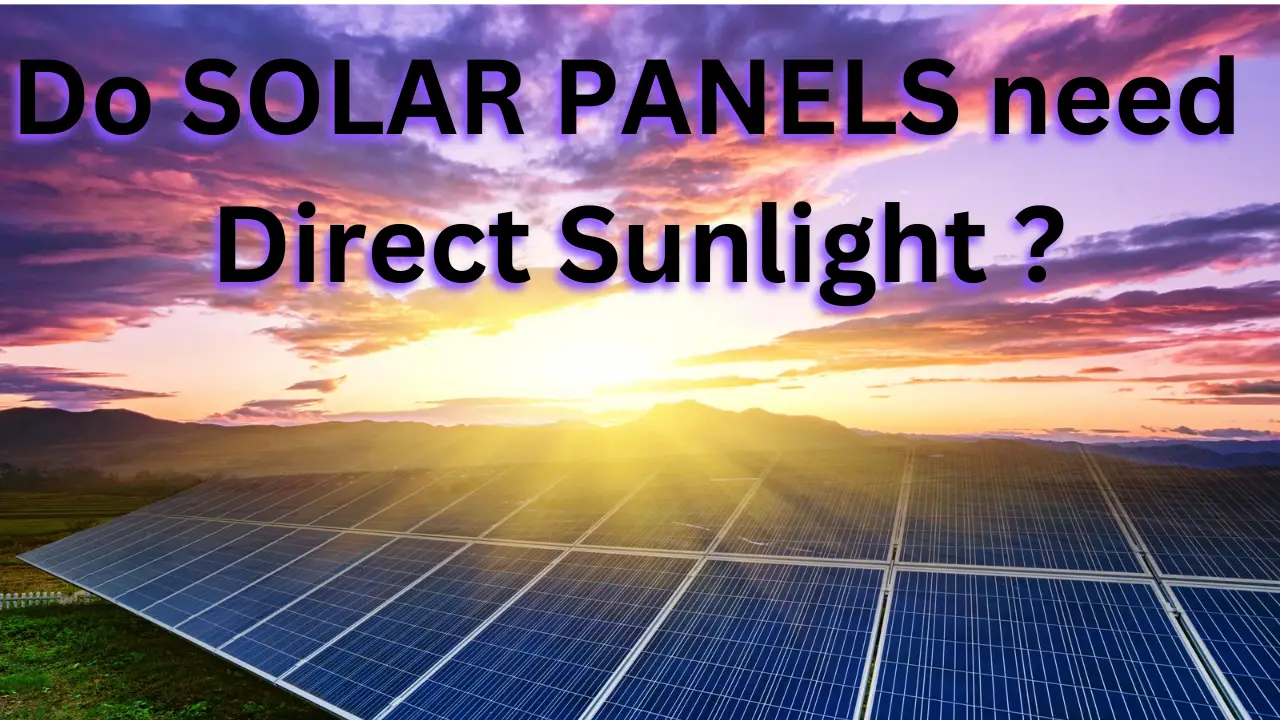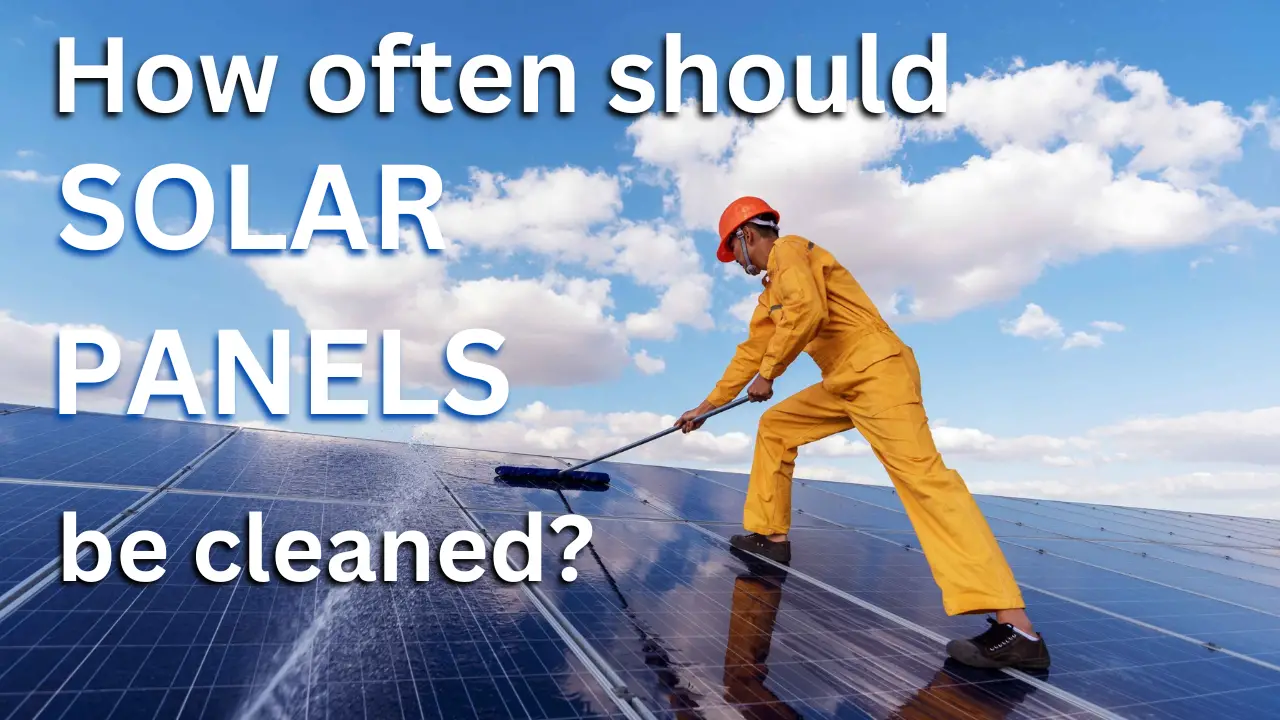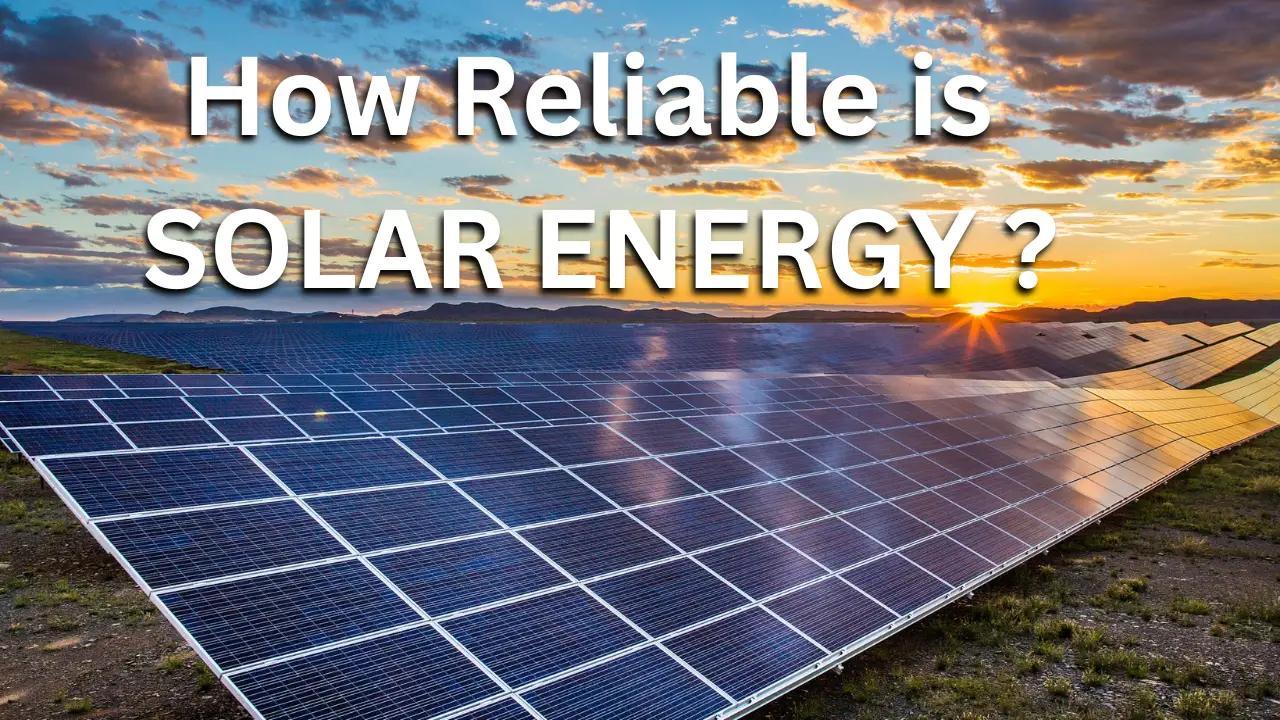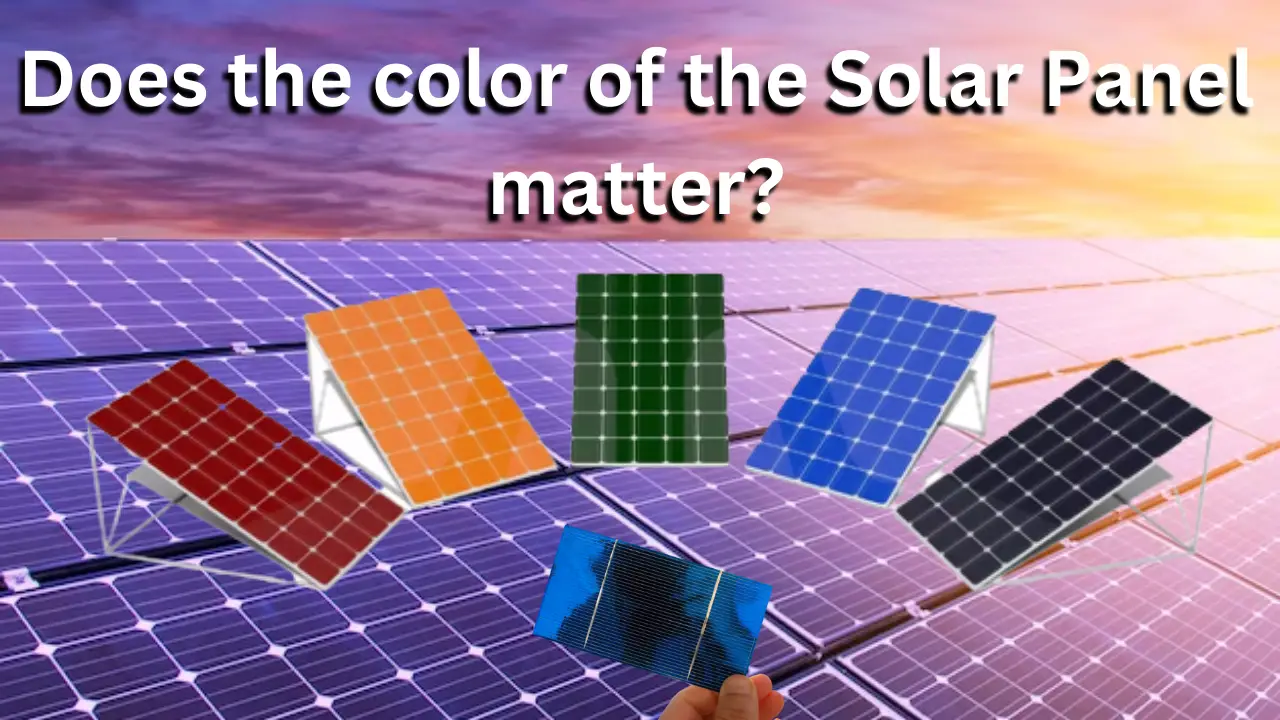Solar panels have become increasingly popular as an alternative energy source, with more and more people looking to harness the sun’s power. But do solar panels need direct sunlight to generate electricity?
In this article, we will look at the factors that affect solar panel efficiency, the best positioning for solar panels, and what to do if you cannot install solar panels in direct sunlight.
While it is true that solar panels are most efficient in direct sunlight, they can still generate electricity without the need for direct sunlight, like in cloudy or overcast weather. However, they do work best on sunny days when UV, light, and heat levels increase, generating more electricity.
Do solar panels need direct sunlight to generate electricity?
In the simplest terms possible, solar panels take the UV rays from the sun and turn them into power that can be used in your home. Based on this straightforward explanation, you could assume that solar panels only function when they are directly in the sun. That’s not the case, though. Cloudy days don’t affect solar panels because all available light stimulates them.
Any form of visible light can activate photons, the technology used in solar panels to convert sunlight into electricity. They will therefore function the same on a cloudy or overcast day. Having said that, really sunny days are optimum for solar panel operation. The reason is that as light, UV, and heat levels rise, photons are compelled to move more, which increases electricity.
To address your question, solar panels do not require direct sunshine to produce electricity. However, performance will suffer in the absence of direct sunlight. Solar panels need 1000 W/m2 of light to operate at their best; only direct sunshine can provide that much light. In essence, though, a solar panel can produce power only in conditions when it is light enough for you to see it.
The optimum positioning for solar panels
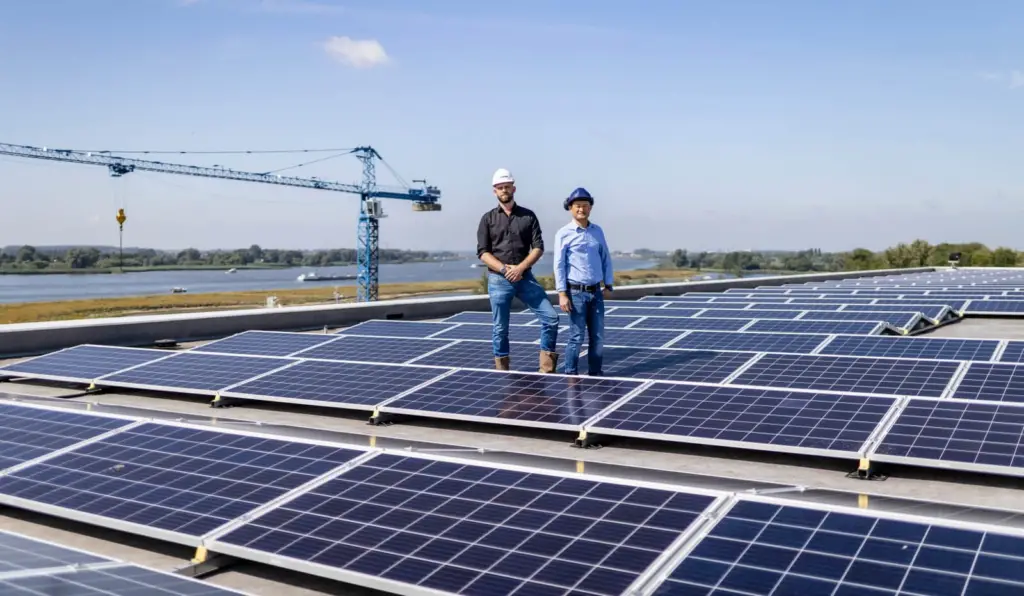
Positioning is a crucial consideration when trying to maximize the quantity of electricity your solar panels will generate. Generally speaking, facing south is the ideal orientation for solar panels. Panels facing south will have the longest exposure to the sun, giving them the best chance to absorb its rays and turn them into energy.
Not everything is lost if your property doesn’t have a south-facing roof. You may still find solar panels to be a good choice. If south-facing solar panels are not an option for you, west-facing and then east-facing are your next best options.
As they will receive the least amount of sunlight throughout the day, north-facing panels are the least efficient choice. Installing panels on the east and west-facing roofs is an option if installing panels facing the south is not for you. Essentially, the direction a solar panel should face depends on how much sunlight it will receive during the day.
The optimum climate for energy conversion

Despite the notion that the quantity of sunlight is the sole determining factor in energy conversion, other elements, such as weather conditions and placement, play an equally significant role. Solar panels can convert approximately 15-22% of solar energy into usable energy.
It is noteworthy that although solar panels can still operate on a cloudy day or without direct sunlight, their highest efficiency is achieved when exposed to full and direct sunlight.
Do solar panels work in the shade?
Yes, solar panels can work in the shade, but they will generate less electric current than they would under optimum conditions.
The exact impact of shading on your solar power system depends on these factors:
- Duration of the shading: The amount of electricity your solar panels produce will decrease the longer they are shaded. Remember that sunshine and shadow levels will change daily due to the sun’s rays’ continually shifting paths.
- The technology used in the solar panels: Solar panels utilize advanced technology known as half-cut photovoltaic cells. This innovation enables the latest solar panels to be less impacted by partial shade, unlike conventional solar panels that do not incorporate partially cut PV cells. In essence, the half-cut technology enhances the efficiency and performance of solar panels, allowing them to function even under partially shaded conditions.
- Inverter setup: If a central string inverter is utilized, power production from the entire solar array will be decreased if one panel is shaded. In contrast, shading on a single panel in systems using MLPEs—microinverters or DC power optimizers—has no effect on other panels and only slightly reduces the quantity of energy produced.
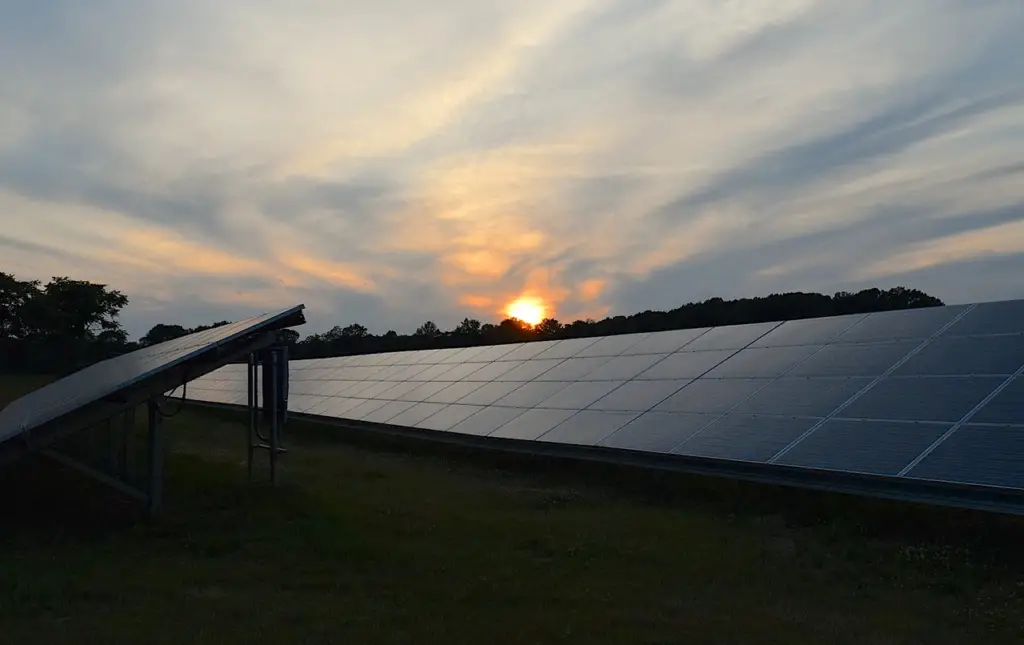
What If My Solar Panels Can’t Be Installed in Direct Sunlight
While it is true that solar panels require direct sunlight to function at their best, there are a few other ways to produce electricity, even if you can only install panels in indirect sunlight.
Utilizing a solar reflector is one choice, increasing the amount of sunlight reaching your panels by 30%. Using a solar tracking system is an additional choice that will change the angle of your panels throughout the day to ensure that sunlight hits them directly. Finally, you can spend money on high-efficiency panels that can function in low light.
Although solar panels are typically installed on roofs, they can also be installed in various other places. Solar panels, for instance, can also be fixed to poles or the ground.
Do Weather Conditions Affect Solar Panel Efficiency
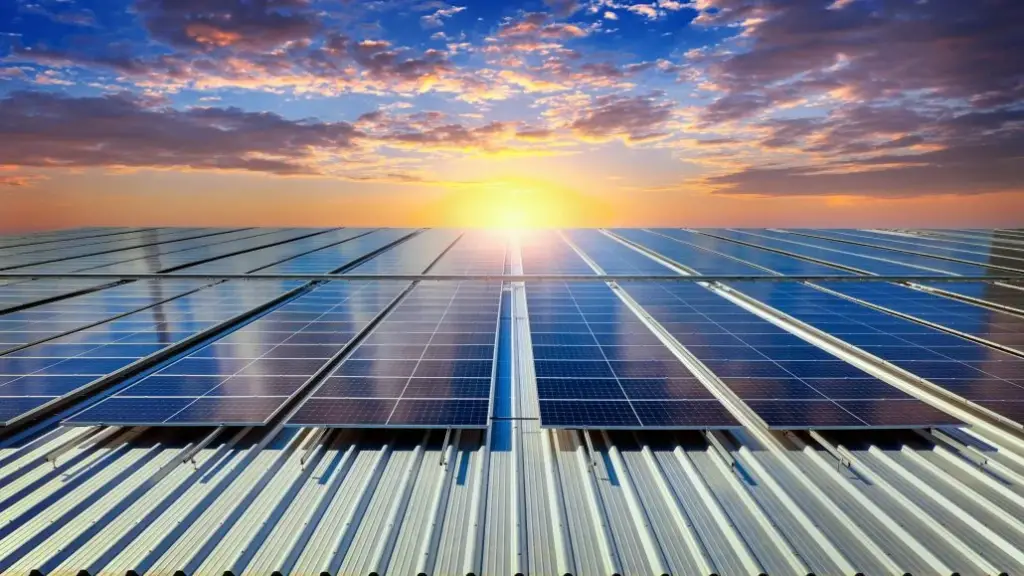
Do solar panels work in cloudy weather? And what about rain? If you live in an area with less-than-ideal weather conditions, you may wonder whether your solar energy solutions will still be effective.
Several factors can influence solar panels’ efficiency, the weather being one of them. So read on to learn more about how weather conditions affect solar panel efficiency.
Do solar panels work on cloudy days?
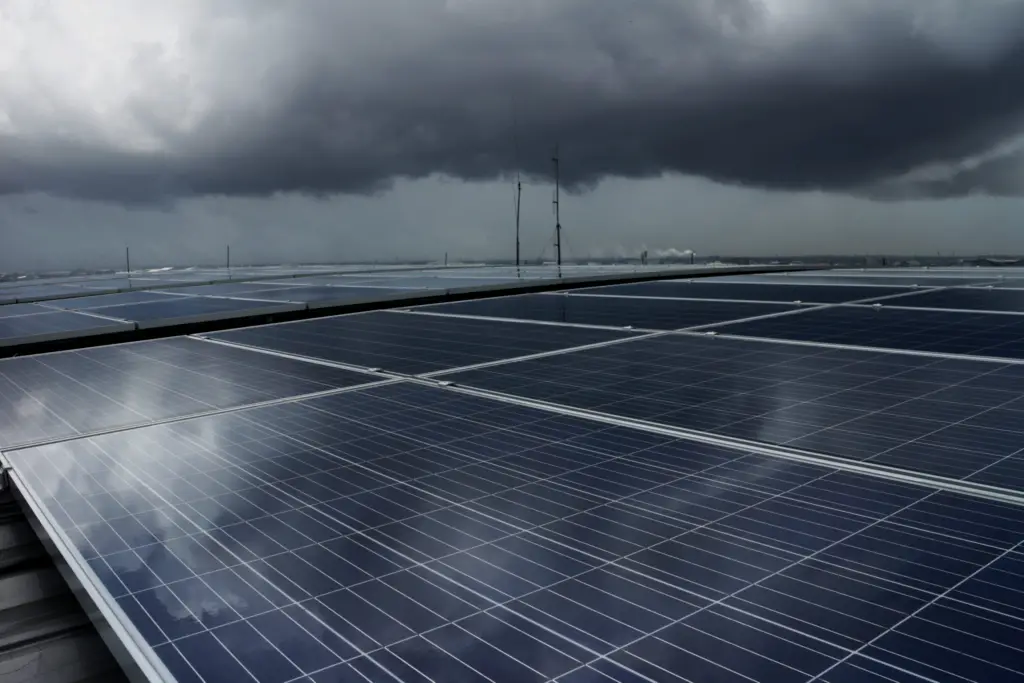
Solar panels do indeed function on cloudy days, although they are less efficient than they would be on a sunny day. This is because clouds prevent some of the energy from the sun from reaching the ground.
Depending on how dense the cloud cover is, your solar panels will generate anywhere from 10% to 60% of their usual power production when it is cloudy.
Do solar panels work in the rain?
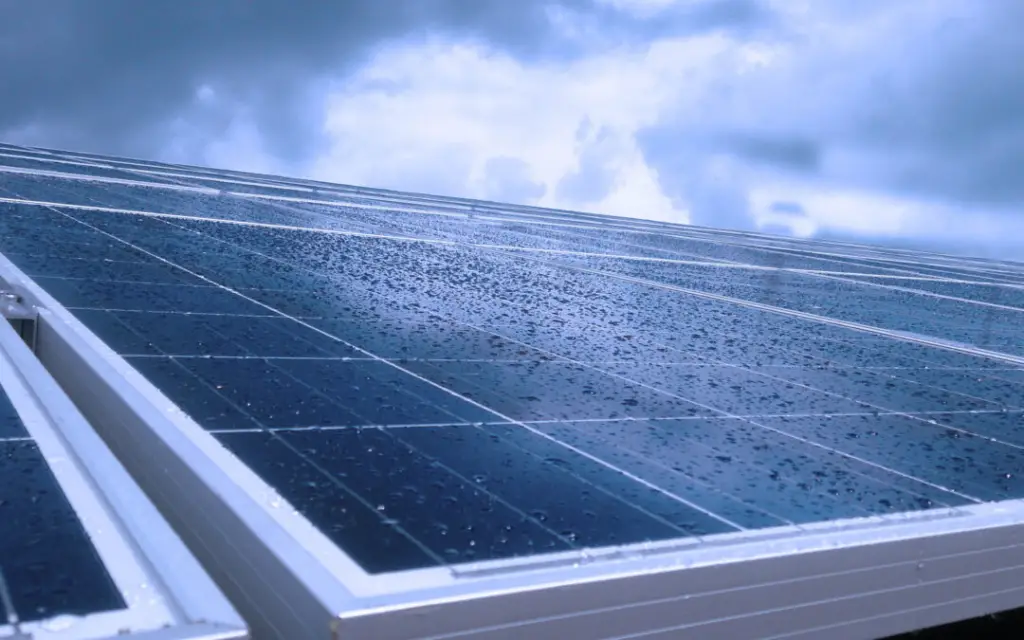
Solar panel output isn’t affected by rain but by the dense cloud cover that follows rain. System output will be 40–90% lower when rain clouds obscure the sun and darken the sky.
Despite this, rain has a benefit in that it helps clean the solar panels, even though it can decrease temporary production. If you reside in a dry climate, a good downpour can considerably impact your solar production.
Do solar panels work when it snows?
Yes, solar panels can still generate electricity in snowy environments if the snowfall isn’t too deep. Your solar panel system will produce solar electricity during a light snowfall since sunlight can penetrate a light dusting of snow. Additionally, cold weather benefits solar panels because it keeps them from overheating and losing efficiency.
On the other hand, a significant snowfall would significantly restrict energy output by obstructing sunlight. The good news is that solar panels are excellent at shedding snow, so this circumstance doesn’t arise very often. This is because they are slippery, warm up from heat absorption, and are frequently put at an angle.
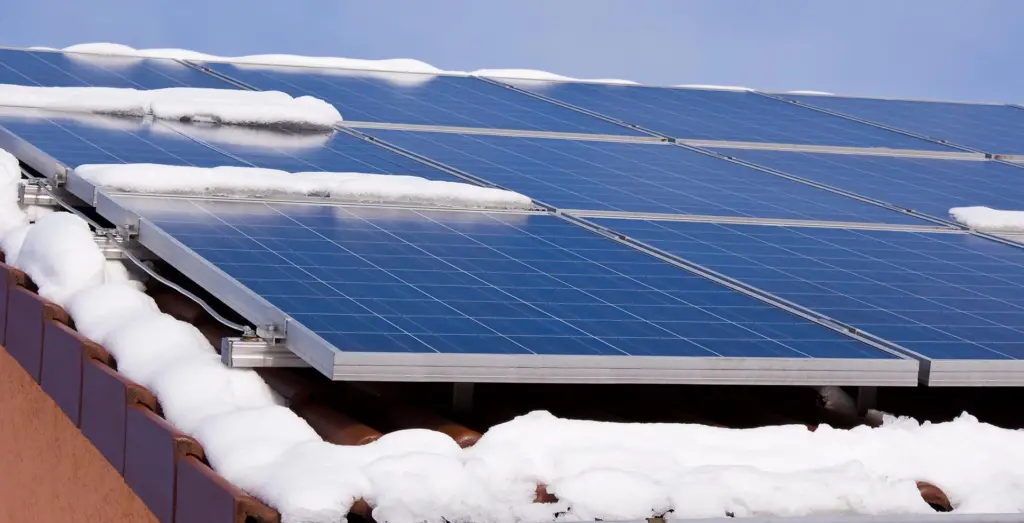
How much sunlight do solar panels require to be economical?
A general rule of thumb is that an average of four peak sun hours per day is enough sunlight to make a solar renewable energy system economically viable. Peak sun hours refer to the duration of time during a day when sunlight intensity is sufficient for solar panels to generate electricity efficiently.
However, the economic viability of a solar panel system is not solely dependent on the amount of sunlight it receives. Factors such as the cost of electricity from the local utility provider, the cost of the solar panel system installation, and available state and federal incentives also play a significant role in determining whether solar is economically feasible.
It is essential to conduct a thorough cost-benefit analysis that considers all relevant factors specific to your location and circumstances to determine if installing a solar panel system makes economic sense for you.
FAQ
Which solar panels work best in the shade?
Newer solar panels that use half-cut photovoltaic (PV) cell technology are designed to minimize the impact of partial shading. These panels can perform better in shaded areas than traditional panels that don’t use half-cut PV cells.
At what temperature do solar panels stop working?
Solar panels don’t stop working at a particular temperature. However, high temperatures can reduce the efficiency of solar panels, leading to lower power output. Solar panels generally perform best at temperatures between 25°C and 35°C. Above this range, solar panel output decreases due to increased resistance in the circuit.

Conclusion
In conclusion, solar panels are a great alternative energy source to generate electricity without direct sunlight. While they are most efficient in sunny weather, they can still work on cloudy or overcast days if visible light exists.
And suppose your solar panels can’t be installed in direct sunlight. In that case, options, including solar reflectors, solar tracking systems, or high-efficiency panels designed for low-light conditions, are still available. So, let the sunshine in and start harnessing the power of solar energy!

